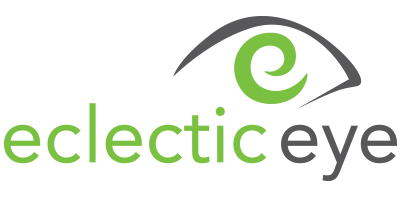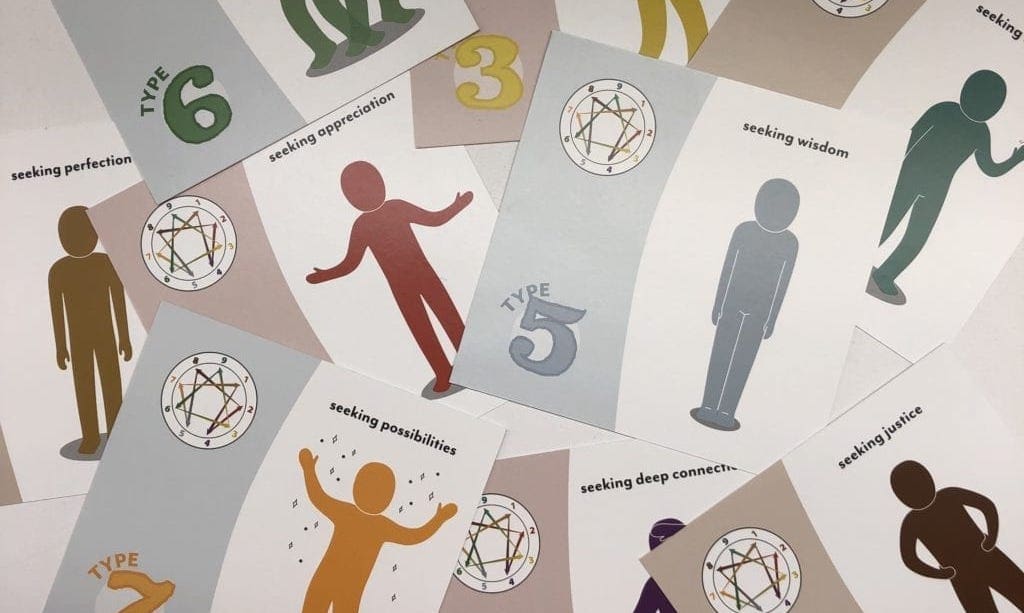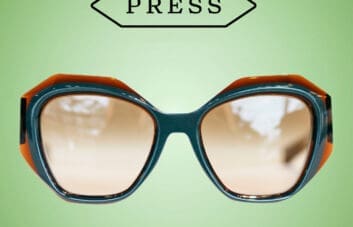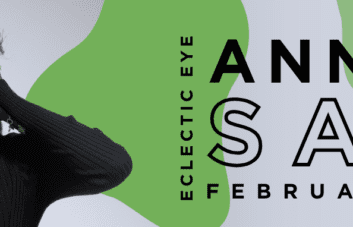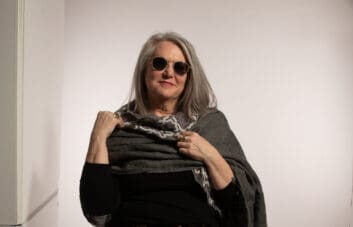
Over the last seven years, I have worked hard to reframe my perspective on the way I manage myself and others. As a small business owner, I have often said that it feels like I am on an island. There is no Board of Directors, CEO, CFO or COO to collaborate with on various details of the day. There is no one to be accountable to, which can be both liberating and terrifying. It’s true, my husband owns Eclectic Eye with me and is actively involved, but we operate on two separate islands within the business. He sees patients most days and fulfills his optometric duties, and I coordinate a good portion of the rest, whether it’s operations, marketing, human resources or facilities.
When I finally realized that I needed an outside perspective, I made the choice to join a Vistage business group, thanks to a recommendation from a friend. I was a member of a great CEO group in Memphis for three years that gave me a confidential sounding board. They helped me get out of my own head and see things from a broader perspective. In addition to our all-day sessions once a month, I met with a mentor for an hour or so once a month. His leadership was essential at that time in my life, and I will always be grateful.
The group allowed me to share my worst fears, ask difficult questions and always provided me with constructive feedback. They also helped me, gently, hold myself accountable from month to month. Vistage brought invaluable speakers for half days that educated me on all areas of business, from legalities to human resources. Vistage taught me so, so much. I miss that group.
Searching for a New Solution
When I decided to part ways with Vistage, it was partly because I realized that I needed more than a Board of Directors. I needed to invest some time in deep, personal growth work. Personal meaning, literally, I had to stop managing everyone and everything around me and shine the spotlight on the hard fact that I was doing a poor job of managing me. My insides didn’t feel like they matched my outsides and it hurt. The control, drive and discipline I had used to create and sustain Eclectic Eye was starting to erode my understanding of self. It was getting easier to understand others and my effect on them, but I lost sight of who I was.
Mid-40s, kids leaving home and the proverbial mid-life crisis? Perhaps, but also a crisis of self. The tools I had been using for so long to keep all the balls spinning were rapidly failing.
Thus began a slow, painful, cathartic journey of self. A quality therapist and the Living Centered Program at Onsite are a few of the resources that have been critical to my journey. It is still unfolding, but so far, has been an astonishing awakening of me, my soul and my relationship with Eclectic Eye and others. Uncovering me has only increased my desire to be a better leader for my family and my Eclectic Eye team. I truly hope to provide an environment that encourages those around me to be their best potential selves.
One thing I have learned is that to be a solid leader, I have to be willing to be uncomfortable with my flaws AND my gifts. Awareness of each is essential in order to delegate, reframe, and see the “big picture.” Learning how to see the grace in my flaws, and understanding their value to my growth, has been revolutionary for me. I began to question how to awaken this knowledge in my team so it could be used proactively.

How I found the Enneagram
I stumbled onto the Enneagram a few years ago through a podcast I was listening to, and it piqued my interest. I have completed many personality typing systems through the years: Myers-Briggs, DISC and Insights, to name a few. They all say the same the same thing about me in one way or another. I am Fiery Red on the Insights Model/ “The Director” and ENTJ /“The Commander” on the Myers Briggs assessment. Each labeled me based on the personality traits the world sees and that I have learned to deploy. None of these tests, except for Insights Discovery, have I ever considered potentially useful for my team. Honestly, I detest labels, as do most people, I think.
When I was listening to the podcast about the Enneagram, I got very curious. For the first time, I was hearing a conversation about using a personality typing system that helps uncover the “why” of personality. Not only that, but it also suggested that the behavior isn’t necessarily something that has to be managed or avoided. It has to be known. It has to be acknowledged. It has to be valued. This spoke to me.
I have learned as a Fiery Red Director, or ENTJ Commander, that I have to tone it down, work on my listening, stop being so…so much for the world. That’s true in many ways, but honestly, I had some shame around those labels. It felt like I was flawed. The Enneagram looks into the motivators of those traits and teaches you how to spot those deep wounds so you can then move into a place of serenity and strength with them. Myers Briggs and Insights taught me how to work around my personality traits. The Enneagram is teaching me how to work with my traits to understand myself better and be better for the world. Self-understanding is the key to understanding others. It helps me have empathy for myself so that I can, in turn, have greater empathy for others.
Implementing understanding of my Enneagram
 Going down the path of the Enneagram is not a one-test-and-done kind of thing. It is an evolutionary process that is ongoing. It’s collaborative, informative and rich with possibilities if used NOT to label each other, but to understand each other.
Going down the path of the Enneagram is not a one-test-and-done kind of thing. It is an evolutionary process that is ongoing. It’s collaborative, informative and rich with possibilities if used NOT to label each other, but to understand each other.
In the summer of 2018, I mentioned the Enneagram to my team. Several had heard of it. A few had even gone through the process or taken a test online. I explained that I thought it could be very useful for us to learn to communicate better. I felt like it could help us see situations through the eyes of our customers and each other. Empathy is one of our core tenants. It’s an important part of our ethos. I came to believe that the Enneagram could deepen our empathy, and my team was enthusiastic about the process.
I found a local Enneagram coach, Anna Duggan, through Facebook, of course. I reached out to her and felt like she would be a good match to help walk us through this process. She agreed to provide the team the Riso-Hudson Enneagram Typing test and a 30-60 minute session for each person afterward to help them uncover their individual numbers. It’s a self-discovery process, not an exact science, and requires a good coach to walk you through some questioning after the test to drill into the heart of your core number. I required our team to read The Road Back to You by Ian Cron and Suzanne Stabile, as I felt that this was a great jumping off point for learning. It’s an easy, quick read that gives an excellent overview. They also host a podcast of the same name, which was suggested.
Many people were psyched after their meeting with Anna and the understanding they had gained. A few people were irritated by the process. They felt exposed and confused, which is understandable. I tried to validate this mostly, and simply allow it to unfold. And, it has.
Workplace Management and the Enneagram
In October, Eclectic Eye met for our bi-annual planning day. We brought Anna back to take us through understanding how to use the Enneagram in our workplace effectively. She provided several hours of exercises that exposed each of us to the other. We learned how each type communicates in times of security and times of stress – which is useful because you can quickly depersonalize a situation when someone is in stress. We learned about each others’ speaking styles when they are doing well and when they are not doing so well. We learned to recognize potential conflicts by understanding the triggers of each type, and we also learned ways to affirm each type to provide them with stability when their environment feels particularly chaotic. But all this work is just the beginning.
With new employees, I now have them reach out to Anna to start the process. We talk about it in our interview process, because we don’t want people coming in surprised that this is an expectation. We now have a common language to use with each other that helps give us appropriate and helpful information about one another. In our daily huddleups, we have a brief reading on a subject through the lens of the Enneagram. Right now, we are reading about conflicts, triggers, pinches, conflict avoidance and how each number has different filters through which they process these conflicts. This is important stuff. In our longer weekly meetings, we have people bring examples from the day-to-day working environment and talk about how their number is driving their response, and if there is opportunity to respond better or differently with that knowledge. It’s all about growing as human beings.
The Enneagram is not a perfect solution to team dynamics. But for us, it is providing useful guidance on each of our motivators. It’s helping to answer how we work with that insightful information to elicit the best possible performance for each of us. I’ve learned that I am definitely not on an island at Eclectic Eye, but it requires a lot of work to understand my team and what they need from me. Only by truly learning about myself am I finally able to provide an atmosphere that promotes tolerance, growth and discovery.
motivators. It’s helping to answer how we work with that insightful information to elicit the best possible performance for each of us. I’ve learned that I am definitely not on an island at Eclectic Eye, but it requires a lot of work to understand my team and what they need from me. Only by truly learning about myself am I finally able to provide an atmosphere that promotes tolerance, growth and discovery.
For me, the most rewarding part of growing Eclectic Eye into what it is today has been the luxury of witnessing my team grow into the people they are, and the Enneagram has become an essential part of our process.
